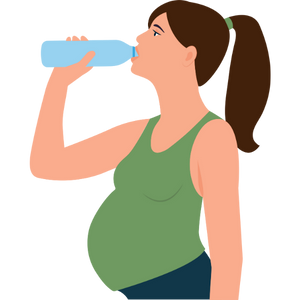In vitro fertilization (IVF) is a complex and often emotionally taxing process for many couples. While the medical side of the procedure is well-controlled and monitored, the role of nutrition in supporting the IVF process is often overlooked. The right foods can help prepare the body for the treatment, as well as support the recovery and growth of a healthy embryo. In this blog, we’ll explore the best foods to eat during IVF treatment.
- Folate-rich foods: Folate is a B vitamin that is important for cell growth and division. Foods rich in folate include leafy greens, citrus fruits, and legumes.
- Antioxidant-rich foods: Antioxidants, such as vitamins C and E, help to reduce oxidative stress, which can affect the quality of the eggs and sperm. Berries, nuts, and fatty fish are all great sources of antioxidants.

- Healthy fats: Foods high in omega-3 fatty acids can help regulate hormone levels and promote healthy fertility. Examples of healthy fats include avocados, nuts, and fatty fish.
- Fiber: Fiber is important for maintaining a healthy weight and preventing insulin resistance, which can negatively affect fertility. Whole grains, legumes, and vegetables are all high in fibre.
After IVF Treatment
- Protein-rich foods: Protein is essential for supporting the growth and development of the embryo. Foods high in protein include chicken, fish, and beans.
- Iron-rich foods: Iron is important for maintaining energy levels and preventing anemia. Foods high in iron include leafy greens, red meat, and poultry.
- Calcium-rich foods: Calcium is important for supporting the growth and development of the embryo, as well as maintaining the health of the mother’s bones. Foods high in calcium include dairy products, leafy greens, and almonds.

- Hydrating foods: Hydrating foods, such as fruits and vegetables, help to reduce inflammation and support the recovery process after IVF.
Eating a well-balanced diet before and after IVF treatment can help to optimize the IVF success rate and support a healthy pregnancy. It is always recommended to speak with a healthcare professional or a registered dietitian before making any significant changes to your diet.
